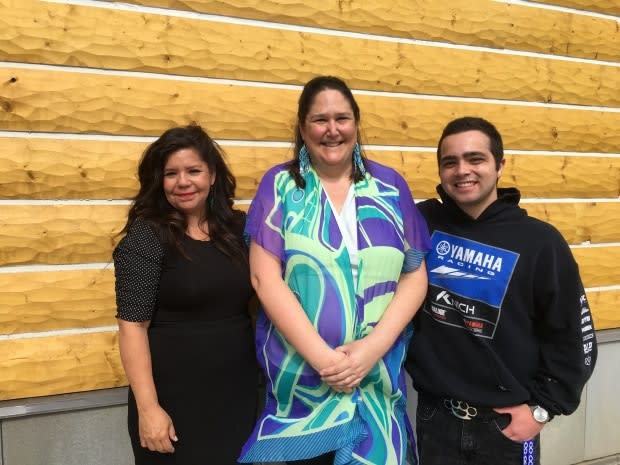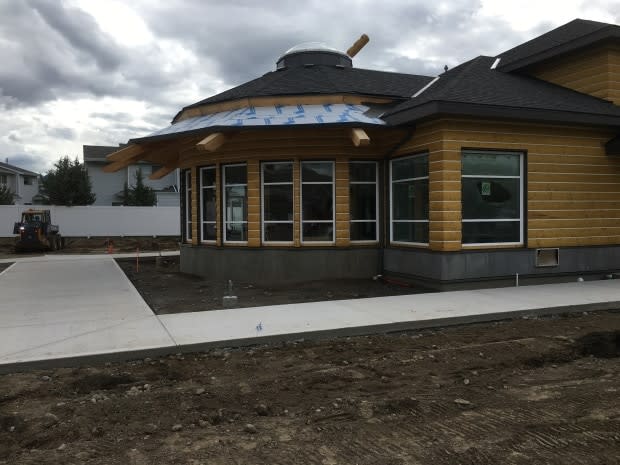Kamloops Indigenous housing project a place for youth, elders to connect and grow
A new housing project in Kamloops, B.C. will connect First Nations elders with youth who have been part of the child welfare system to help ease their transition to adulthood.
The building is called Kikekyelc: A Place of Belonging. It will house 26 youth between the ages of 16 and 27 and five elders who will offer support once it officially opens on September 1.
All 26 spaces have been filled and there's already a wait list to get in.
"Most, if not all of them have spent a significant amount of time in foster care in their upbringing," Seanna Proulx, housing and youth team leader told CBC's Shelley Joyce.
"We've got some that are struggling with independence a little bit more than others. We've got some that are struggling with all kinds of hurdles and barriers to achieving independence on their own. But all of them are excited to be here."
According to Statistics Canada, more than 14,000 Indigenous children under the age of 14 were in the foster care system in 2011. They accounted for seven per cent of all children in Canada, but nearly half of all children in foster care.
The $4.7 million project is run by Lii Michif Otipemisiwak Family and Cultural Services (LMO). Executive director Colleen Lucier said the child welfare agency had never been involved in a housing project.

The facility features a large circular space and wide hallways for gathering.
Having elders on site gives young people access to mentorship and a connection to their culture they may not have had during their time in the child welfare system, Proulx said.
"We really believe that trauma-informed practice begins with how you feel, so we wanted to ensure that when the tenants — the young people — entered the facility, they see themselves reflected," Lucier said.
There will be no drugs or alcohol allowed on the premises and staff will be in the building 24 hours a day. Guests will need to be approved in advance.
"Part of the work we'll be doing with them is to encourage healthy living and to encourage them to engage with whatever substance counselling they need," Proulx said.
Brody Fisher, a youth mentor with LMO, gained mentorship through the organization during a rough patch in his own life.
He became a mentor to give back to other Indigenous youth in need of help.
"The Circle Room is very significant," he said. "It shows unity between all Indigenous people that will be living here and it's just one big room of connection."

That sense of connection is a big part of the project, Lucier said.
"Once we've established that, our best hope is that they're going to start seeing possibilities and they're going to start having dreams for themselves and they'll start recognizing their potential and that with support they can do anything they want."
A goal is that the space will no longer be needed within the next 25 years, because hopefully children won't be put into the child welfare system and will be able to stay with their families, Lucier said.
"We really want to restore traditional ways of caring for our children," she said.
"Our goal is to do a really, really great job today to eventually transition Kikekyelc into a home for elders because we won't be needing it for our young people anymore."



